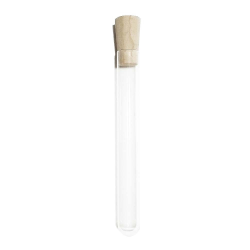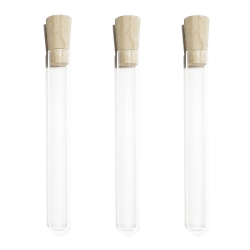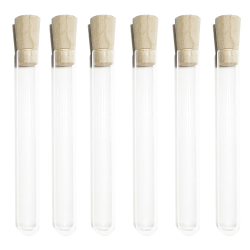
Seed saving guide
Advice before storing seeds and seeds?
Saving seeds is important to ensure the survival of the plants and to use them again in the following seasons. Here are some tips for saving seeds:
-
Choose healthy seeds:
Before saving seeds, make sure they are healthy and not infected with diseases or pests. Seeds that have been picked when mature and undamaged are best suited for storage.
-
Dry the seeds:
Seeds should be dried before being stored. To do this, lay them out on a clean paper or cloth and let them air dry. Make sure they are not exposed to direct heat or humidity to prevent mildew.
-
Seed cellar:
Seeds should be stored in an airtight container. Be sure to store them in a cool, dry, dark place to avoid mold or premature sprouting.
-
Label:
It is important to label each container with the name of the plant, the date of harvest and the date of storage to remind you of when it was stored.
-
Germination test:
It is important to test seeds for germination before using them. This will let you know which seeds are still viable and use them first.
Advice:
By following these tips, you can save seeds in good condition for use in future seasons. It is important to note that some seeds have a shorter shelf life than others, so it is important to use them in the years following harvest.
Seed storage
Saving seeds is important to ensure the survival of the plants and to use them again in the following seasons. There are different preservation methods, each with its advantages and disadvantages.
-
Storage in the refrigerator:
Storing seeds in the refrigerator is one of the most common methods. It keeps seeds in a cool, dry environment, which is ideal for seeds that need low humidity to germinate. It is important to store them in an airtight container to avoid moisture.
-
Storage in the freezer:
Storing seeds in the freezer is an effective method of preserving seed viability for long periods of time. However, it is important to ensure that the seeds are completely dry before storing them in the freezer, as moisture can cause damage. It is also important to store them in an airtight container to avoid moisture.
-
Storage at room temperature:
Storing seeds at room temperature is a common method for seeds that need a higher temperature to germinate. However, it is important to ensure that the seeds are well dried and stored in an airtight container to avoid any moisture or mould. It is also important to store seeds out of direct sunlight to avoid excessive heat. This method may be less effective for seeds that need a cooler, drier environment to germinate.
Advice:
It is important to note that the seeds of some plants may be more sensitive to heat or humidity and should be stored differently. It is therefore important to find out about the specific needs of the seeds before saving them. It is also important to regularly test the germination of seeds to ensure that they are still viable before using them.
ntation Hexagraine !
Welcome to our site dedicated to the transformation of useful plants. our ambition is to create a veritable encyclopedia of knowledge on the transformation of utilitarian, medicinal and aromatic plants in order to promote nature and self-sufficiency through natural activities intended for the largest and the smallest
You will find our free and downloadable DIY useful plant transformation guides in PDF format as well as our collections of useful plant seeds on our online store.
What is a useful plant?
Useful plants will have no more secrets for you, before the appearance of oil everything was made from plants. The production of vegetable pigments, regional aperitifs, vegetable fibers, braided basketry, fabrics, vegetable paper was 100% natural. Medicinal plants and their health benefits are also categorized as useful plants. You can also tame useful plants for your daily needs in terms of creative hobbies, self-sufficiency, body care...
Why HEXAGRAINE in a yellow hexagon?
Hexagraine from the contraction of the words HEXAGONE and GRAINE. The hexagon symbol of France and its excellence. A natural shape and color found in nature ambassador bees essential for the survival of biodiversity and the reproduction of seeds.
Our strengths !
Hexagraine only works with French manufacturers using ecological working methods.- Our packaging is labeled "IMPRIM'VERT".
- Our seed cellars are made in France.
- Our seed cellar caps by a company labeled "LIVING HERITAGE".
- Our useful garden seeds are all produced in France without exception. We work as much as possible with organic seed producers and associations for the preservation of life.
You want to participate in the Hexagraine adventure, several solutions are available to you!
- Join the community on social networks- Become an ambassador
- Share your useful plant transformation tips and techniques.
- You can follow us via our newsletter




